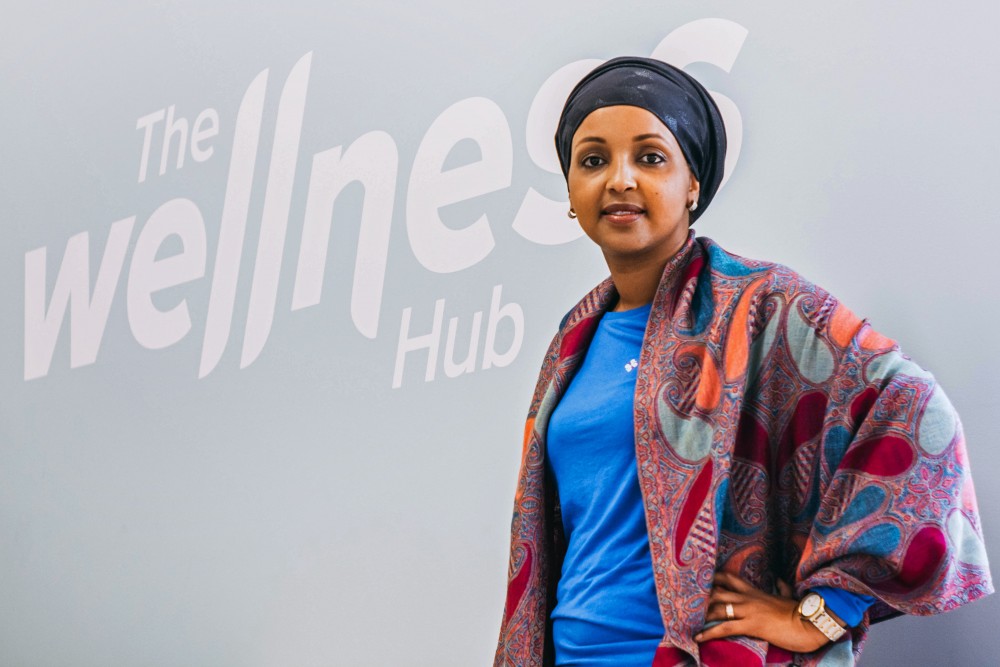A grant from the Minnesota Super Bowl Host Committee helped transform an old Cedar-Riverside gymnasium into a health and wellness center.
The new “Wellness Hub” is an expansion of the People’s Center Clinics and Services, which offers medical services to the West Bank community. The renovated addition to the clinic aims to bridge the gap between community wellness and medical care.
“The concept behind a wellness center inside a clinic is to serve as a bridge between the clinic and a formal, professional gym,” said Sahra Noor, CEO at the People’s Center Clinics and Services. “This is just a continuation of our journey to add wellness into our care model.”
The Wellness Hub, set to open Feb. 5, was funded by a $300,000 grant from the Minnesota Super Bowl Host Committee Legacy Fund and Target. The gift was part of the host committee’s “52 Weeks of Giving” campaign, a year-long effort to award dozens of state communities with grants that promote health and wellness.
“[The Legacy Fund’s] whole mission is to make sure once the event is gone there is a long-term impact on the community,” said Cassie Batinich, communications representative for the host committee.
Noor said the idea of turning the clinic into a “one-stop shop” for individual and group fitness in the community had been in the works for several years.
The new space features Zumba and yoga areas, exercise equipment, handicap-accessible restrooms and an exam room.
The Wellness Hub is located directly above the current clinic, occupying the space of a former gymnasium used by community youth basketball teams and the University of Minnesota’s Theater Arts and Dance Department.
Dana Nelson, vice president of the host committee’s Legacy and Community Partnerships, said Target deployed team members and other construction partners to perform the renovation.
“This grant was unique because the Super Bowl committee usually gives the grant and the organization does the construction,” Nelson said. “In this case, Target gave both.”
Noor said the center will be open to all members of the community, not just patients. Nightly group fitness classes will be advertised in the neighborhood as well as on campus.
“[The fitness classes] are really meant to bridge some of the divisions in the community, so that a student of the U can come together with an elder in the neighborhood and long-term residents,” Noor said. “Everybody can come together and be well together.”
Aside from its regular fitness operations, there will be healthy cooking demonstrations and live music Zumba through partnerships with other neighborhood businesses.
The Wellness Hub will have times each week where the center is open exclusively to women.
“Modesty is important for a lot of women in the community,” Noor said.
Classes will be taught by community members, local chefs and, potentially, University staff, she said.
Noor said she hopes to partner with the University’s School of Kinesiology, as well as integrative community health services like massage therapists and chiropractors.
“A lot of people have trauma … their own history,” Noor said. “And those kinds of services really compliment what we do and offer people hope and alternative ways of healing the body.”







